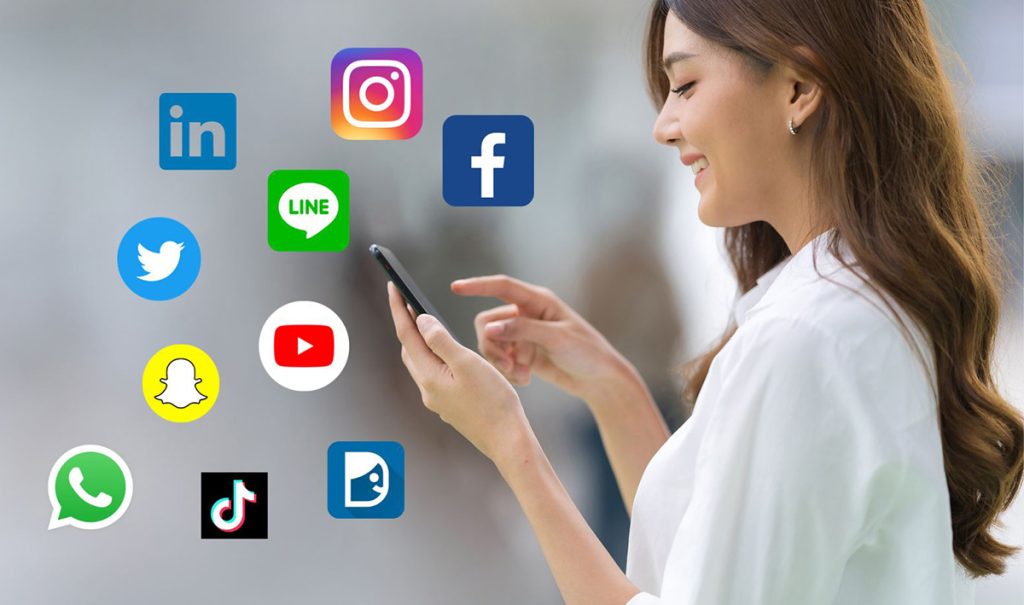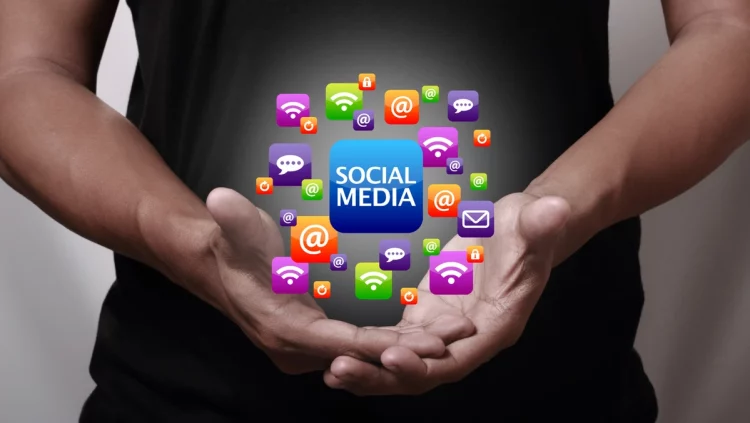Introduction
In the digital age, social media has become an integral part of our daily lives. Platforms like Instagram, Facebook, Twitter, and TikTok connect us to the world, allowing us to share moments, stay informed, and engage with friends and influencers. While social media offers many benefits, including convenience and global connectivity, there is increasing concern about its impact on mental health. The constant exposure to curated images, opinions, and lifestyles can lead to negative emotions such as anxiety, depression, and feelings of inadequacy.
This article will explore how social media affects mental health, the potential psychological risks, and how we can maintain a balanced and healthy relationship with these platforms. By understanding the impact of social media on our well-being, we can take steps to protect our mental health and find a healthy balance in the online world.
1. The Psychological Impact of Social Media
a. Comparison and Self-Esteem Issues
One of the most significant psychological impacts of social media is the tendency to compare oneself to others. Social media platforms often showcase the highlight reels of people’s lives—vacations, celebrations, accomplishments, and “perfect” moments. While these posts can be inspiring, they can also create unrealistic expectations and foster feelings of inadequacy.
- How it affects mental health: Constant comparison to others can lower self-esteem and create a sense of “missing out” or not measuring up. This phenomenon, often referred to as “social comparison,” can lead to body image issues, insecurity, and a distorted view of reality.
- Example: Scrolling through images of seemingly perfect vacations, relationships, or careers can make you feel that your life is somehow less fulfilling, even though these posts are often curated and don’t reflect the whole picture.
b. Fear of Missing Out (FOMO)
The Fear of Missing Out, or FOMO, is another psychological effect of social media. When we see our friends or influencers enjoying activities, attending events, or achieving milestones, we may feel like we’re being left behind or not living our best lives.
- How it affects mental health: FOMO can trigger feelings of loneliness, sadness, and dissatisfaction. It can create a sense of urgency to be constantly involved in social activities or achieve similar levels of success, leading to stress and anxiety.
- Example: Seeing someone’s post about a new job or vacation might make you feel inadequate or anxious about your own career or personal life.
c. Cyberbullying and Online Harassment
Unfortunately, social media also provides a platform for negative behaviors, such as cyberbullying, trolling, and harassment. These harmful interactions can have a serious impact on mental health, especially for younger individuals.
- How it affects mental health: Victims of cyberbullying may experience depression, anxiety, low self-esteem, and even suicidal thoughts. The anonymity that social media provides can make people feel empowered to say things they wouldn’t in person, leading to harmful and toxic behavior.
- Example: Online bullying, whether through mean comments, hurtful memes, or direct messages, can leave deep emotional scars and cause long-lasting mental health issues.
d. Anxiety and Overstimulation
Social media provides constant notifications, updates, and information, which can be overwhelming for the mind. The continuous influx of information can lead to decision fatigue, anxiety, and overstimulation, leaving you feeling mentally drained.
- How it affects mental health: The never-ending stream of news, posts, and interactions can create a sense of urgency and pressure to always be engaged, leading to increased stress levels. This constant mental stimulation can prevent relaxation and make it difficult to disconnect, resulting in burnout.
- Example: Checking social media multiple times a day or being glued to your phone can lead to increased anxiety, especially when news or interactions are negative.
e. Positive Aspects of Social Media
Despite these challenges, it’s important to recognize that social media also has positive aspects that can contribute to mental well-being. Social media can foster a sense of connection, support, and empowerment, especially when used mindfully.
- How it helps mental health: Social media provides a platform for connecting with like-minded individuals, joining support groups, or learning about mental health and wellness. It can also be a source of inspiration and motivation, with people sharing their journeys of personal growth, recovery, or success.
- Example: Online communities dedicated to mental health advocacy, fitness, or creative expression can provide a sense of belonging and validation, offering support when you need it most.
2. How to Maintain a Balanced Relationship with Social Media
While social media can be a source of stress, there are several strategies we can implement to ensure it doesn’t negatively affect our mental health. By practicing mindfulness and setting boundaries, we can create a healthier relationship with social media.
a. Set Boundaries and Time Limits
One of the simplest ways to maintain a healthy relationship with social media is by setting boundaries around its usage. This can include limiting the time you spend on certain platforms or designating social media-free zones in your day.
- How it helps: By creating time limits (e.g., using an app to track your screen time or setting a timer for daily use), you prevent excessive scrolling, which can contribute to overstimulation and negative emotions.
- Example: You could decide to limit your social media usage to 30 minutes a day or designate the first and last hour of your day as “phone-free” to focus on other activities like reading or exercising.
b. Follow Accounts That Promote Positivity
The accounts you follow can have a significant impact on your mental health. Curating your social media feed by following positive, inspiring, and uplifting accounts can improve your overall experience online.
- How it helps: Following accounts that promote body positivity, mental health awareness, creativity, and personal growth can shift your mindset and provide inspiration rather than comparison.
- Example: Follow accounts that share motivational quotes, self-care tips, or success stories that resonate with your values, rather than accounts that promote unrealistic standards or negativity.
c. Practice Digital Detoxes
Taking regular breaks from social media, also known as a “digital detox,” is a powerful way to reset your mind and regain a sense of balance. Disconnecting from social media for a day, weekend, or even longer can help you reduce anxiety and focus on more meaningful offline experiences.
- How it helps: Digital detoxes allow you to break free from the constant barrage of information and comparison, giving you time to reconnect with yourself and the people around you without distractions.
- Example: Try taking a full day off from all social media each week or disconnect for an extended vacation. Use this time to engage in hobbies, spend quality time with family, or simply relax.

d. Be Mindful of Your Emotions and Reactions
Before you mindlessly scroll through your feed, take a moment to check in with your emotions. Are you feeling happy, relaxed, and curious, or are you anxious, bored, or seeking validation? Being mindful of your emotional state can help you recognize when social media use is negatively affecting you.
- How it helps: Mindfulness allows you to catch negative patterns before they escalate. If you’re feeling down or anxious while using social media, you can step back and engage in self-care activities instead.
- Example: If scrolling through your feed triggers negative feelings, take a break, go for a walk, or practice breathing exercises to calm your mind before returning to social media.
e. Limit Exposure to Negative News
Constant exposure to negative news stories, especially in times of crisis or uncertainty, can increase stress and anxiety. While it’s important to stay informed, consider limiting the amount of news you consume on social media.
- How it helps: Limiting exposure to negative news can help reduce feelings of helplessness or anxiety, allowing you to focus on positive or constructive topics.
- Example: Follow trusted news outlets that provide balanced coverage, or set aside specific times during the day to check the news rather than allowing it to dominate your feed.
3. Conclusion: Striking the Balance
Social media can be a double-edged sword. While it has the potential to connect us with others, inspire us, and provide valuable information, it can also contribute to stress, anxiety, and negative self-image. The key to maintaining a healthy relationship with social media lies in balance. By setting boundaries, curating your feed, practicing mindfulness, and taking breaks when needed, you can enjoy the benefits of social media while minimizing its negative impact on your mental health.
Ultimately, maintaining balance means being conscious of how social media makes you feel and making adjustments when necessary. By using social media mindfully, we can protect our mental health and ensure that it enhances rather than detracts from our well-being.

















































